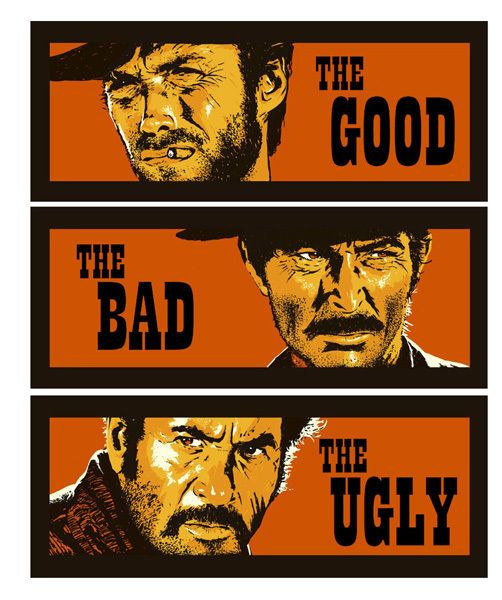SPOILER ALERT, it ain’t pretty.
The good the bad and the ugly
When Shannon Pritchett asked me to be a SourceCon Budapest speaker I knew directly that I wanted to speak about something I’m passionate about: creative and personal outreaches. In my role as a recruiter, I work closely with the development teams at my company. From time to time I have a “recruiter approached me” talk with developers. During those talks, I always notice that it’s not the fact that they are being approached that annoys them, it is how they are being contacted what annoys them. And to be honest: when I read some of the examples I received, I can’t blame them.
To motivate why I send creative and personal outreaches, I asked 40 developers about the outreaches they receive, what they like about the approaches they receive and what annoys them.
In the next part, I’ll share some responses I received on the questions I asked. Some of these responses are quite honest and direct (yeah, most of them are Dutch ????). I’m not going to make it any prettier than it is — this is what they said, and this is how they feel about the outreaches they receive. Continuing reading is at your own risk.????

What is the worst approach you received, what made it wrong?
“People who say they have read your profile and come up with a job that doesn’t match at all.”
“It was a recruiter who wanted to recruit me for a position I knew about and had all his facts wrong. That is how careful recruiters are.”
“I’m a female in software development. I’ve once gotten a message saying the company was looking for ‘boys who were into developing.’”
“Completely standard text with placeholders still filled in with different names… received the message from a different name than the one that was written down at the end of the mail.”
“Being approached for jobs outside my skillset, with zero references to their job requirements.”
“Default template. And where they misspelled my name.”
“Telling me, I’m fit for the job cause I’m using the language X of my current job. While we’re not using language X. And another one, recruiters sending out a bulk message by just replacing the name. But forget to replace all names, so just random other names pop-up. Can name many more examples, I read them all.”
What annoys you the most about recruitment messages?
“A complete lack of understanding of both the field and my profile, as well as an impersonal approach focusing on buzzwords rather than skillsets.”
“The spammy nature.”
“Copy pasted messages and very formal messages.”
“Recruiters that are so obviously interested in scoring a commission and don’t care about you or the company that they’re representing.”
“Messages asking me to link for the future or to expand the recruiter’s network. I’m not here for you; I’m here for me. All the recruiters want this. If we continue like this, my network would consist of recruiters.”
“That they are impersonal.”
“Templates, or more specifically shooting with buckshot to fulfill a position, rather than searching for the ideal candidate.”
“Wrong names.”
“Idiots that think they’re “helping” me by sending me generic non-information.”
What is the best message you received, what made it enjoyable?
“A message that shows actual interest.”
“Respectful, honest, interested personal email message.”
“One person has done the homework and knew what I’m really into and wrote a quiet personal email. I mean, if both are German, you can for sure write a German email. (But, the personal part was also quiet wired, but I liked it, others maybe not)”
“A very personal email and a recruiter who investigated me, so he knew what I wanted.”
“A conversation starting with interest, and questions, instead of pushing stuff.”
“Real background information, took his time to get my information. Much better than spamming.”
“A message that as a bare minimum showed that the recruited made some effort to at least know who I was before spamming.”
“The likes of, Hey, I think you currently feel like ‘x’ because someone with your skillset and this sort of company usually struggles with skill ‘x’ and I think I have a better option for you.”
Not everyone felt this way:

“There aren’t any good ones sadly.”
“Haven’t gotten any.”
“Never got one.”
I also asked: what would you do differently if you were a recruiter:
“I’d use my experience in the field to try and offer people jobs they are a good fit for, and I’d pay attention to someone’s work history — so not approaching someone who’s just started a new job two weeks ago.”
“Approach casually with a genuine interest in the person and their work.”
“Quality over quantity, not to aim for a large group of people, try to select a few candidates that might fit the company or role I am recruiting for.”
“Make sure I get another job.”
“I would not automate the first contact.”
“Investigate not only in a network of possible candidates but also in a network of people who might know possible candidates.”
“Be direct, honest and precise/specific about what you need/want and what you have to offer.”
To finish my survey I asked, is there anything else that you would like to say to recruiters? Here’s your chance.
“Be aware of how much some of you are hated because of the spammy way you act and that this is very unproductive.”
“Please don’t spam too much.”
“The majority of you are bad, and you should feel bad.”
“Stop tossing meaningless buzzwords around. It makes you look ridiculous. Everyone these days does agile, scrum, etc. And no, I’m not a ninja/wizard/guru/hacker, I’m a developer.”
“Don’t copy paste messages; they should be different for every candidate. Spend more time on recruitment, find better people who fit better.”
“I think a focus on the quality of the match and how you approach them vs. blindly sending out a generic template to as many people as possible will yield much greater results. It requires that you learn about the job you’re recruiting for though, and that won’t always be easy. You’ll want to be able to hold a conversation with a developer or designer about their work.”
“Be open and honest (tell which company the job offer is from). Don’t approach a recently recruited employee with another job offer to get another commission.”
“If you’re recruiting software developers, make sure you at least know a bit, which technology is which (at the level of knowing that Java and JavaScript are not “almost the same”).”
I didn’t write this blog to insult anyone or talk bad about the outreaches we send, this is what it is, and I didn’t make it uglier than it is (I left the worst comments out!). I wrote this blog because I hope that it does the same thing to you as it did with me: it shocked me a little bit, but it also inspires me to prove them wrong and do the best that I can to send great messages.
Next, to that, it motivates to share how I try my best to make a difference by using out of the box platforms and methods to send creative outreaches. And that is precisely what I will talk about at SourceCon Budapest.
